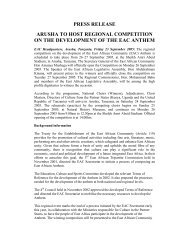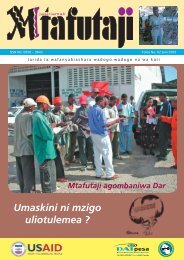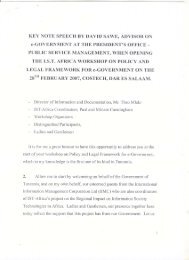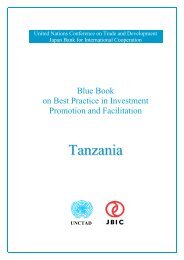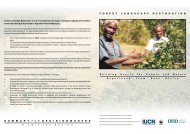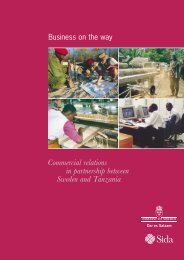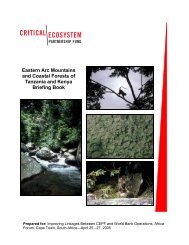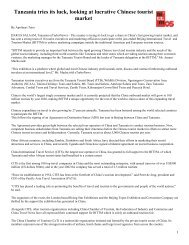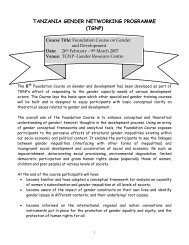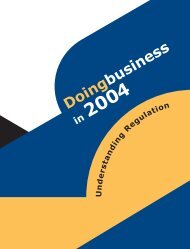Education, Employment and Earnings of Secondary School-Leavers ...
Education, Employment and Earnings of Secondary School-Leavers ...
Education, Employment and Earnings of Secondary School-Leavers ...
Create successful ePaper yourself
Turn your PDF publications into a flip-book with our unique Google optimized e-Paper software.
1. IntroductionInformation on labour market outcomes, including the earnings <strong>of</strong> educated groups, inSub-Saharan Africa is limited. Government <strong>and</strong> individuals in this region investheavily in education <strong>and</strong> training but little is generally known about how theseinvestments generate rewards in the labour market. This is particularly so forindividuals who fail to gain access to wage employment <strong>and</strong> are required to rely onexploiting self-employment opportunities. The current paper, using a recentlycompleted tracer survey <strong>of</strong> secondary school completers from Tanzania, analyses theimpact <strong>of</strong> education <strong>and</strong> training on individual welfare through the estimation <strong>of</strong>earnings equations.<strong>Earnings</strong> equations provide a convenient framework within which average privaterates <strong>of</strong> return to educational qualifications <strong>and</strong> training can be computed. 1 There is adearth <strong>of</strong> evidence on the magnitude <strong>of</strong> these rates for wage employees in Tanzania<strong>and</strong> almost none for individuals in self-employment. Given the increasing number <strong>of</strong>secondary school-leavers entering self-employment this represents a substantiallacuna in the literature. The aim <strong>of</strong> this paper is to partially fill this gap by estimatingsectoral-specific earnings equations for employees <strong>and</strong> the self-employed from acohort <strong>of</strong> secondary school students who completed junior secondary schooling inTanzania in the 1990s.Tracer surveys <strong>of</strong> the kind used in this paper, unlike conventional labour force orhousehold surveys, permit the collection <strong>of</strong> additional information on parentalbackground <strong>and</strong> schooling quality. This allows for some important refinements to thespecification <strong>of</strong> the earnings equations. In particular, the independent role <strong>of</strong> parentalbackground <strong>and</strong>, inter alia, schooling quality can be explored <strong>and</strong> the extent to whichthe estimated returns to the general human capital measures alter with the inclusion <strong>of</strong>these variables investigated.1 Card (1999) provides a detailed review <strong>of</strong> methodological <strong>and</strong> other issues germane to the estimation<strong>and</strong> interpretation <strong>of</strong> earnings equations.1



